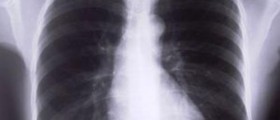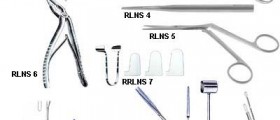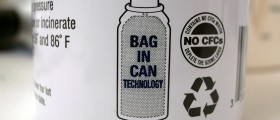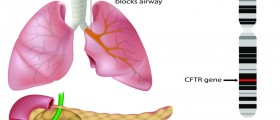
Nasal polyps are soft, fleshy, benign growths that develop inside the nose. They can vary in size and they can be yellowish or pinkish. There can be only one polyp or a cluster of them.
Causes of nasal polyps
Nasal polyps usually starts as small and gradually grow, causing partial blockage of the nasal airways. It is not exactly known what causes polyps, but it is suspected that chronic inflammation of the inner nasal membrane leads to edema or swelling, which eventually, due to gravity, starts hanging down or drooping, forming a polyp. Polyps can also develop in the sinuses, which have the same membrane as the nose, susceptible to the same kind of inflammation.
Certain factors increase the chance of developing nasal polyps. Those include asthma, allergies, especially to Aspirin, cystic fibrosis and certain rare disorders of the nose and sinuses, such as allergic fungal sinusitis and Churg-Strauss syndrome.
As for the frequency, nasal polyps affect one in every hundred people. They are more common in men than in women and they are usually seen in people over 40 years of age. Nasal polyps in children are not common and if a child is diagnosed with polyps, he or she should get checked for cystic fibrosis, which is often associated with nasal polyps.
Symptoms of nasal polyps
Initially, symptoms of nasal polyps are very similar to those of common cold or flu, including runny or stuffy nose. However, viral infections of the nose subside in two weeks at latest. The symptoms of nasal polyps last longer than that.
Other symptoms may include postnasal drip, problems with the sense of smell or taste, headache, snoring and sleep apnea. Chronic sinus problems can also be seen, especially if the polyps block the drainage of the sinuses. In some rare cases, a polyp can be so big it causes swelling and enlargement of the nose and of the face.
Treatment for nasal polyps
The initial therapy for nasal polyps includes medication. The medication that is usually used involves steroids, which can be topical, in form of sprays and drops, or oral, in form of steroid tablets, such as Prednisone. Steroids need to be used for a while before they give results. they are usually quite effective in shrinking the polyps and unblocking the nasal passages.
In case medication therapy fails to solve the problem, surgery may be necessary. The procedure is called polypectomy and it can be done with local or general anesthesia, depending on the location, the size and the number of polyps.

















Your thoughts on this
Loading...